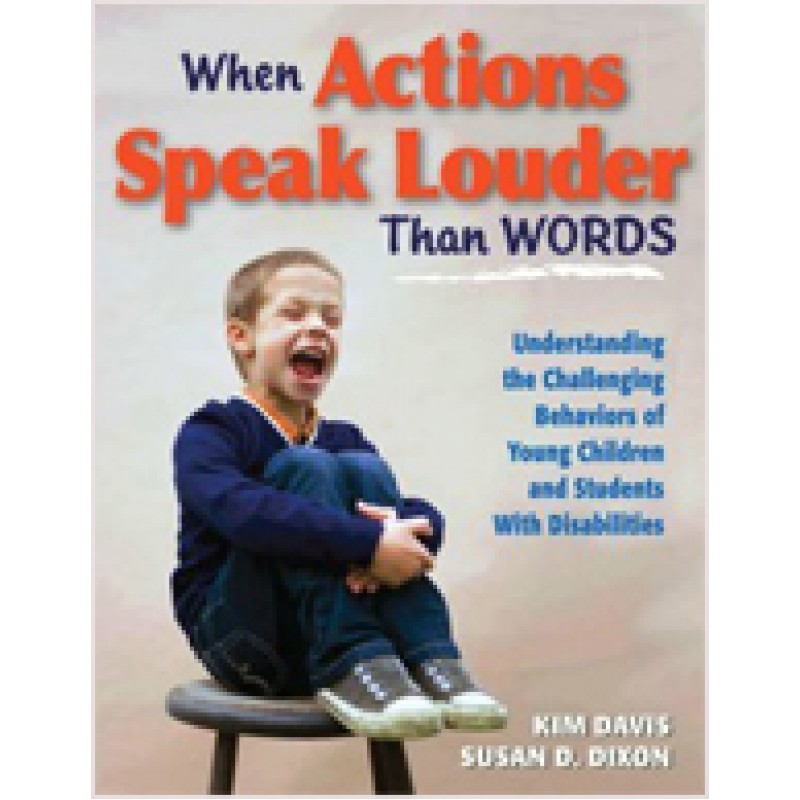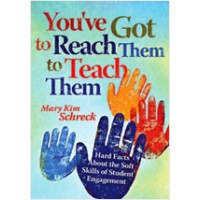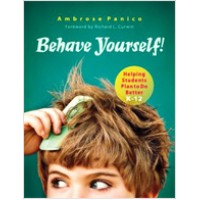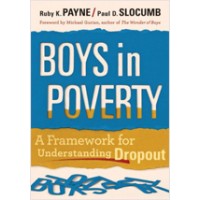When Actions Speak Louder Than Words: Understanding the Challenging Behaviors of Young Children and Students With Disabilities, Dec/2009
| Author(s) | Kim Davis, Susan Dixon |
| ISBN10 | 1934009601 |
| ISBN13 | 9781934009604 |
| Format | Paperback |
| Pages | 216 |
| Year Publish | 2009 December |
Synopsis
Build your understanding of behavior as communication and learn to interpret the messages behind the actions. This book provides information and tools to support all children whose primary way to communicate is through challenging behaviors. The authors address what behaviors children use to communicate, what kinds of messages they may be sending, and how adults can ask six critical questions to better understand and meet children’s needs.
Drawing from extensive experience in autism and speech pathology, the authors use accessible language to explain how central nervous system disabilities and hidden issues can affect a child’s behavior and ability to communicate. They show how to create an improved learning environment and offer proactive strategies to support more acceptable behavioral alternatives.
Throughout the book, stories provide enlightening, sometimes humorous, examples of how children use behavior to communicate. Engaging exercises and end-of-chapter questions can be used by individuals or teams to examine and improve their current practice.
About The Authors:
Kim Davis is a research associate for the Indiana Resource for Autism at the Indiana Institute on Disability and Community at Indiana University Bloomington. Kim has extensive experience in working with people of all ages with disabilities. Through her interactions with families, teachers, and educational professionals whose lives are touched by people with disabilities, she has become an advocate for recognizing behavior as a means of communication. Her workshops and trainings build skills for providing supportive environments in which diverse students can develop and use healthy behaviors as a means of communication. An educator since 1972, Kim first worked as a physical education teacher.
Kim is author of Adapted Physical Education for Students With Autism. and she has written articles for the Indiana Resource Center for Autism newsletter, Reporter. Kim has worked on numerous video productions and training modules and presented at local, regional, state, and national conferences. Kim also continues to teach courses at Indiana University and within the Bloomington community.
Kim has a bachelor of science in physical education from MacMurray College in Jacksonville, Illinois, and a master of science in physical education with a concentration in adapted physical education from Indiana University Bloomington.
Susan Dixon is a speech and language pathologist supporting elementary-aged children in the Monroe County Community School Corporation in Indiana. She also works for the Indiana Institute on Disability and Community at Indiana University Bloomington, where she is involved in research, writing, and training. Her workshop topics have included behavior as communication; mindful relationship-based practice; integrating therapy into everyday routines, activities, and environments; universally designing early education settings to positively impact language and literacy development; and the social and emotional development of preschool-aged children. Throughout her professional career, Sue has maintained a private practice serving the communication needs of infants, toddlers, and their families, as well as elementary students and adults at home and in vocational settings.
Sue began her career working in a large institution for individuals with significant developmental disabilities and mental illnesses. This experience led her to engage what became a seminal question in her work: How do behaviors function communicatively? Her written work and trainings focus on creating supportive and positive relationships by relying on collaboration among concerned groups to provide diverse individuals opportunities to achieve success.
She is coauthor of Adapting Curriculum and Instruction in Inclusive Early Childhood Settings. Sue has also written articles for Young Exceptional Children and Young Children.
She has a bachelor of science in communication disorders from the University of Wisconsin-Madison and a master of arts in speech and language pathology from Western Illinois University.




